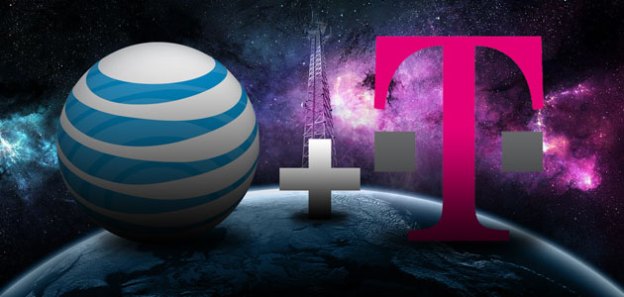
The bigger they are, the harder they fall: AT&T has formally abandoned its bid to take over number-four U.S. mobile operator T-Mobile. As a result, AT&T will take a $4 billion pretax charge during the fourth quarter of 2011 as part of its agreed-upon breakup fee; the terms of the deal also have AT&T required to relinquish assets and other services as part of the failure. However, AT&T also says it will enter into a “mutually beneficial” roaming agreement with Deutche Telekom, although no details have been spelled out.
AT&T placed blame for the merger failure squarely at the feet of the U.S. Justice Department and the Federal Communications Commission, both of whom came out against the deal. Regulators argued that allowing the two companies to combine would reduce competition in the wireless marketplace and harm consumers. AT&T maintains that the U.S. wireless industry is one of the most “fiercely competitive” in the world, with a glaring need for new spectrum. According to AT&T, acquiring T-Mobile would have been a stopgap measure in the spectrum crisis, but dropping the merger will ultimately harm consumer and stifle investment in mobile services.
“AT&T will continue to be aggressive in leading the mobile Internet revolution,” said AT&T chairman and CEO Randall Stephenson, in a statement. “However, adding capacity… will require policymakers to do two things. First, in the near term, they should allow the free markets to work so that additional spectrum is available to meet the immediate needs of the U.S. wireless industry… Second, policymakers should enact legislation to meet our nation’s longer-term spectrum needs.”
AT&T’s decision to abandon the merger comes on the heels of reports that company has been unsuccessful trying to sell off portions of T-Mobile to regional players like Metro PCS, Leap Wireless, and C Spire in a bid to make a combined AT&T/T-Mobile more palatable to regulators.
The immediate future for both AT&T and T-Mobile is not clear. T-Mobile will get a cash infusion from the breakup fees, but Deutche Telekom has indicated that it is not interested in investing any more capital in T-Mobile USA, and the AT&T takeover move has lead to many talent and executive defections at T-Mobile. T-Mobile also still has no clear path to LTE 4G services, although the company is presumably now free to pursue deals with the likes of satellite-assisted services like LightSquared or Dish Network, if they ever get up and running.
AT&T can attempt to move forward with its own LTE network, but it doesn’t have enough spectrum licenses to go nationwide with LTE service. It is in the process of bringing more spectrum online that it acquired from Qualcomm, but there are no significant new spectrum blocks coming up for auction in the near future. The FCC is looking at conducting an auction for licenses in the 500MHz block, but those are several years away, and it’s not clear how effectively existing wireless operators can roll out 4G mobile broadband services using their existing licenses. It’s a problem faced by every mobile operator, not just AT&T.
Sprint may be the biggest winner in AT&T’s decision to abandon its takeover bid for T-Mobile. Not only does Sprint avoid being (by far) the smallest national carrier in the United States, but it also puts itself in a good position to start leasing 4G capacity to other players who are hard up for spectrum. Wth Clearwire and up to half of LightSquared’s intended capacity in its pocket, Sprint might wind up holding all the cards for T-Mobile’s 4G aspirations.
Editors' Recommendations
- This iPad just got a rare discount — save $100 at Best Buy
- 5G home internet: What is it, and should you get it?
- Buying an iPad Mini today? You need to know about this deal
- Why you shouldn’t buy these 5 Apple Watch Series 9 alternatives
- Get up to 23% off Tile trackers during Amazon’s Big Spring sale

